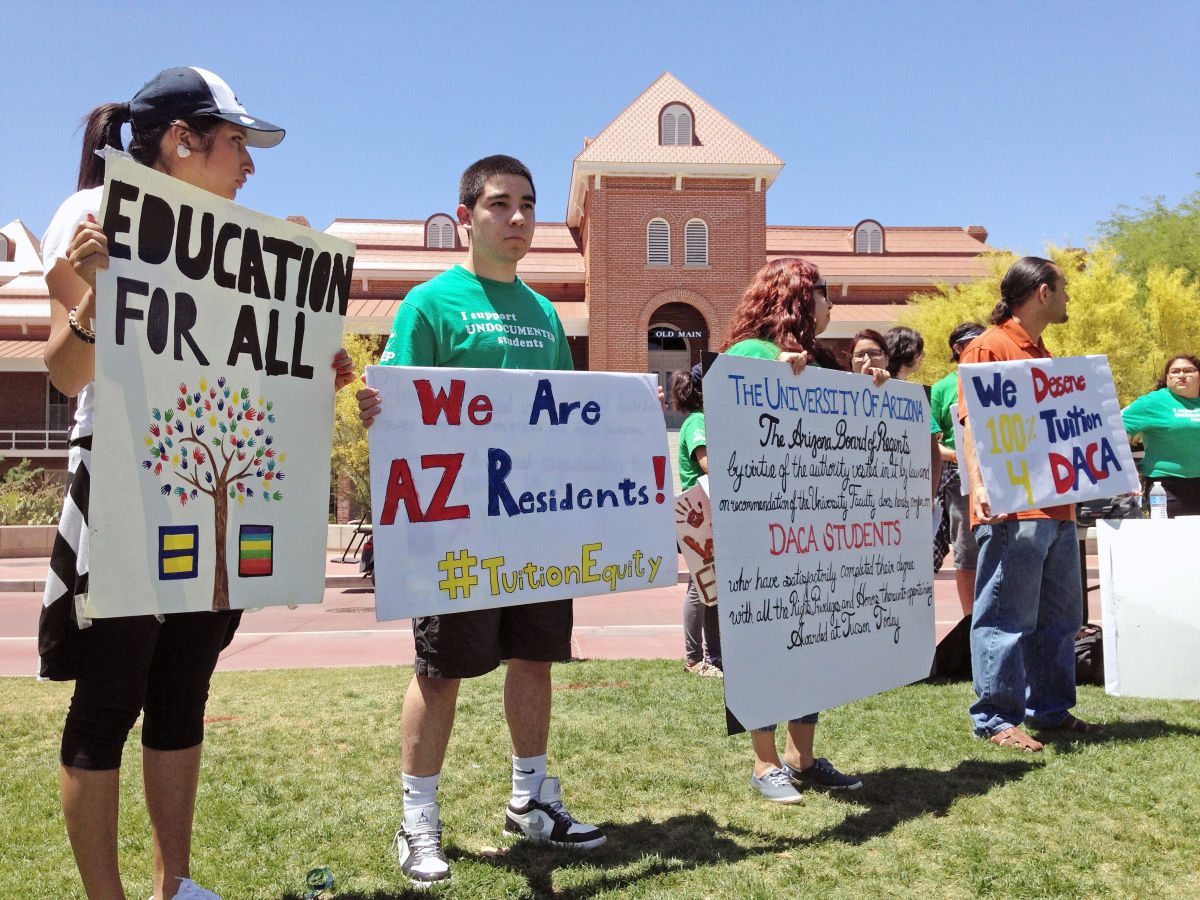PHOENIX ŌĆö "DreamersŌĆØ are not in this country legally and not entitled to┬Ā in-state tuition, the ├█Ķųų▒▓ź Court of Appeals ruled today.
In a unanimous decision, the judges rejected the arguments by attorneys for the Maricopa County Community College District that their legal status under the federal Deferred Action for Childhood Arrivals program means the federal government considers them to be legally present in the country. Based on that, the college in 2015 said they no longer had to pay non-resident tuition.
But Judge Kenton Jones, writing for the court, said that's not the case.
He said DACA, instituted in 2012 by the Obama administration, simply protects those in the program from being deported. And DACA status also allows them to work legally while they are here.
"These benefits do not translate into the recipients' eligibility for in-state tuition or other state and local public benefits,ŌĆØ Jones wrote.
People are also reading…
Today's ruling affects more than the Maricopa colleges which took the lead in deciding to offer resident tuition to dreamers.
After a trial judge sided with the colleges, the ├█Ķųų▒▓ź Board of Regents changed its policy and also offers in-state tuition to DACA recipients who meet other residency requirements. And several other community colleges also have similar policies.
But today's ruling is unlikely to be the last word. The college still has the option of seeking review by the ├█Ķųų▒▓ź Supreme Court.
Nothing in the ruling keeps DACA recipients ŌĆö and even those who have no legal status at all ŌĆö out of either community colleges or universities. But requiring them to pay out-of-state tuition would be a significant practical hurdle.
At the University of ├█Ķųų▒▓ź for example, tuition and mandatory fees for ├█Ķųų▒▓ź undergraduates this past school year is $10,872 for continuing students and $11,403 for new ones; for non-residents the comparative numbers are $30,025 and $32,630.
Tuesday's ruling also does not affect the separate legal question of whether DACA recipients are legally entitled to state-issued driver's licenses. A federal appeals court has concluded they are; the state is seeking U.S. Supreme Court review.
At issue is that question of the legal status of DACA recipients.
The 2012 action by the Obama administration says those who arrived legally as children and meet other conditions can qualify for the program. Put simply, that status, which can be renewed biennially, means they are in no danger of being deported.
But Jones pointed out that DACA is not law and the legal status of those in the program has never been approved by Congress.
"They are more aptly described as beneficiaries of an executive branch policy designed to forego deportation of those who lacked unlawful intent in entering the country and have, since their arrival, led productive lives,ŌĆØ the judge wrote. "However, even accepting DACA recipients' positive societal attributes, Congress has not defined them, or deferred-action recipients generally, as 'qualified aliens' who are 'lawfully present' and therefore eligible to receive in-state tuition benefits.ŌĆØ
Jones acknowledged that the federal Department of Homeland Security has "broad discretion'' in determining its enforcement priorities. That includes administrative decisions, like DACA, about who to deport and who to let stay.
"DHS is not free, however, to disregard legislative direction in the statutory scheme that the agency administers,ŌĆØ the judge continued.
Those federal laws, Jones noted, specifically prohibit states from restricting access by anyone not here legally -- DACA or not -- from access to public benefits like emergency and medical assistance. But the judge said that's quite different than offering in-state tuition which is effectively subsidized by taxpayers.
"The ability to obtain financial assistance for post-secondary education ... is not synonymous with emergency assistance,ŌĆØ Jones wrote. "Nor does access to post-secondary education impose an obligation upon taxpayers to offset the cost.ŌĆØ
Jones acknowledged that Congress has given individual states the option of offering state or local public benefits. But he said the 2006 voter-approved law settled that, making any action to the contrary by college governing boards illegal.










